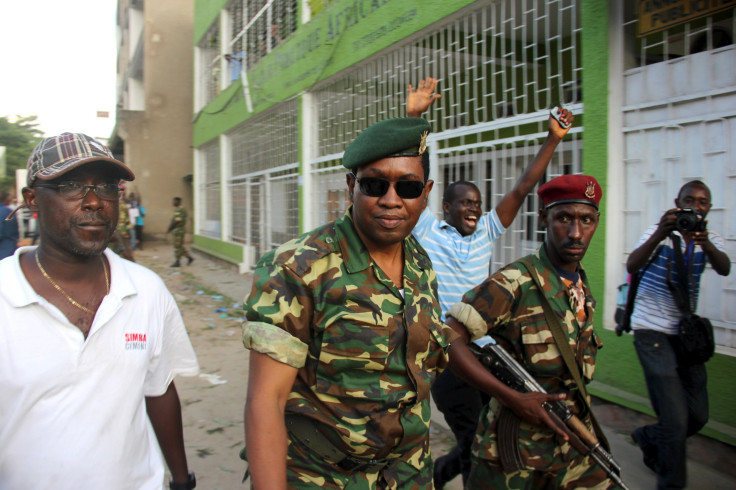Who Is Godefroid Niyombare? Meet The Burundi Army General Who Declared A Coup To Oust President Pierre Nkurunziza

Burundi government forces were reportedly on the hunt for Maj. Gen. Godefroid Niyombare, who declared a coup Wednesday to oust President Pierre Nkurunziza after weeks of political and social unrest. Nkurunziza said the general’s coup attempt was foiled and those responsible would be seized. But Burundians who had protested the president's bid to stay in power celebrated his deposition in the capital city of Bujumbura, media reports said.
Burundi protesters welcome these soldiers who say they have overthrown President Nkurunziza http://t.co/LTLpqHQeOb pic.twitter.com/kBzBF2KHUz
— BBC Africa (@BBCAfrica) May 13, 2015Critics argue Nkurunziza’s third term bid is unconstitutional, but Burundi’s ruling party, the National Council for the Defense of Democracy-Forces for the Defense of Democracy (CNDD-FDD), said his first term does not count because Nkurunziza was appointed by Parliament rather than elected. Nkurunziza, a former Hutu rebel leader, took office in 2005 following a peace deal that ended 12 years of civil war between the Hutu and the Tutsi tribes in Burundi.
Niyombare and his wife narrowly escaped an alleged assassination attempt against the general shortly after his dismissal. Although Niyombare was removed from his post, he was not driven out of the army. It’s not yet known whether Niyombare’s attempt to oust Nkurunziza was personally or politically motivated, experts said.
“Both motives are probably relevant,” said Timothy Longman, director of the African Studies Center at Boston University's Pardee School of Global Studies. “But the Burundi army has been regarded as a real success since the transition in 2006.”
A five-year transitional government in Burundi was planned in 2000 as part of the peace agreement after the civil war. Since Nkurunziza took office, Burundi’s military has integrated an equal number of Hutu and Tutsi soldiers who have received extensive training from the United States and other partners to become more politically neutral. Niyombare became the first Hutu to be named chief of staff of the military, experts said.
“So it may very well be that [Niyombare] is standing for democracy and human rights,” Longman said in an email Wednesday. “Significantly, in the protests in the past few weeks, the military has protected protesters from attacks by police.”
Tens of thousands of Burundians have fled the country and more than 20 people have died in violent clashes between protesters and police since late April, when the CNDD-FDD announced Nkurunziza as its presidential candidate.
Niyombare held a high rank within the CNDD-FDD during the civil war. He played a role in negotiating peace with the Forces of National Liberation, the last Hutu rebel group to sign the peace accord. Both the peace accord and Burundi’s constitution state that no president may be elected for more than two terms. Niyombare also previously served as Burundi’s ambassador to Kenya in 2014.
The political alliances of each police officer and soldier in Burundi could change at any moment, experts said, which could push Burundi over the edge and reignite ethnic conflict.
“You have a divided society that’s barely a decade out of civil war and a military that, if it splits, is very well trained and armed,” said J. Peter Pham, director of the Africa Center at the Atlantic Council, a think tank in Washington. “You have the makings of a deadlier conflict than there was in the past.”
Kathleen Caulderwood contributed to this report.
© Copyright IBTimes 2025. All rights reserved.





















